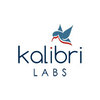Kalibri Labs Ahead of the Curve: Miami, FL
- Miami's occupancy levels have been generally stable and well above their 20-year average since 2015. The year-end 2019 level of 77.6% was significantly higher than the longer-term average of 73.1%. RevPAR decreased at an average annual rate of -2.5% since 2015, well below the Top 25 market average increase of 1.2% for the period. While occupancy levels pre-pandemic were attractive, strong supply increases and a volatile international travel environment hurt pricing power in recent years in Miami.
- The forecast decline in the Miami hotel occupancy level from 2019 to year-end 2020 is -42.7%, meaningfully better than the Top 25 market average decline of -48.3%. The forecast decline in ADR for Miami this year is significantly less than that of the Top 25 market average (-12.3% vs. -26.4%). These Occupancy and ADR contraction levels are expected to result in a -49.8% decline in RevPAR for Miami in 2020 (vs. a -61.9% for the Top 25 market average. The Miami 2020 RevPAR contraction, while significant, compares favorably with forecasts across the 65 markets tracked closely by CBRE (In contrast, Boston RevPAR is forecast to decline by 76.8% in 2020 - worst in the nation).
- The weak pricing environment that has persisted in Miami since 2015 (as noted above) will serve to prolong a recovery as Miami and the nation move towards a post-pandemic environment. While Miami is expected to return to 2019 RevPAR levels in late 2023/early 2024, the previous peak RevPAR level of $150.28 will not likely be achieved until the later years of this decade. RevPAR change from 2020 through 2024 is forecast to average +20.2% during this period (well-below the Top 25 market average of 28.4%).
- The delayed recovery anticipated for the Miami market comes from the historical reality that inbound international and group-related travel has represented a significant percentage of total accommodated demand at a comparatively high Average Daily Rate. 2018 was a record year for demand from these two sources. A rebound in group, convention and international-related demand will be required to insure a return to pre-Covid-19 levels of performance. As the market also relies on demand associated with the cruise line industry, the return of this sector will be another important factor influencing the timing of a recovery in Miami lodging market.
Click here to download the full report
About Kalibri Labs
Kalibri Labs evaluates and forecasts revenue and cost of acquisition performance in the digital marketplace. Our next-generation HummingbirdPXM platform is the only hotel benchmarking and reporting solution driven by AI and machine learning. HummingbirdPXM is built on a robust database of daily transactions and cost of acquisition data gathered weekly from almost 35,000 hotels. Using advanced algorithms, the platform enables owners and operators to determine a hotel's optimal business mix and manage resources to achieve it. Kalibri Labs unpacks the composition of RevPAR to describe market demand by rate category and channel assisting hotel owners and operators to develop strategies that improve profit contribution, which leads to higher asset values. Tapped regularly by the real estate and investment community, the Kalibri Labs database supports hotel transactions and financial restructuring by brokers, lenders, appraisers, and financial consultants. For more information, visit www.kalibrilabs.com.
